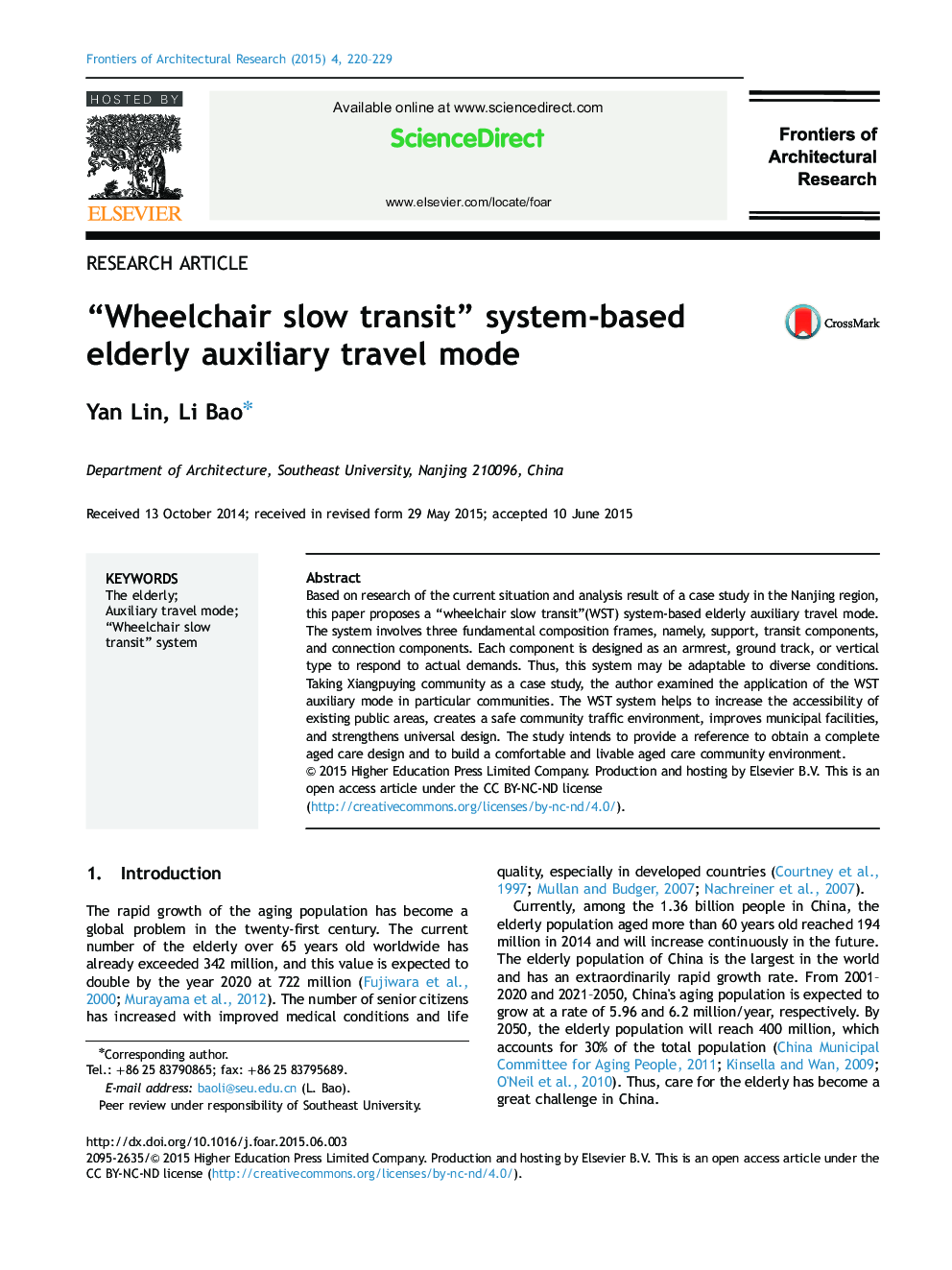| Article ID | Journal | Published Year | Pages | File Type |
|---|---|---|---|---|
| 270780 | Frontiers of Architectural Research | 2015 | 10 Pages |
Based on research of the current situation and analysis result of a case study in the Nanjing region, this paper proposes a “wheelchair slow transit”(WST) system-based elderly auxiliary travel mode. The system involves three fundamental composition frames, namely, support, transit components, and connection components. Each component is designed as an armrest, ground track, or vertical type to respond to actual demands. Thus, this system may be adaptable to diverse conditions. Taking Xiangpuying community as a case study, the author examined the application of the WST auxiliary mode in particular communities. The WST system helps to increase the accessibility of existing public areas, creates a safe community traffic environment, improves municipal facilities, and strengthens universal design. The study intends to provide a reference to obtain a complete aged care design and to build a comfortable and livable aged care community environment.
